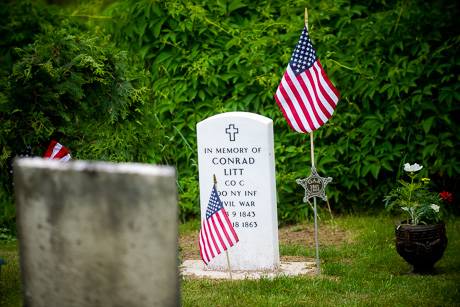
On a cloud-shrouded Memorial Day afternoon in Indian Falls, the folds in the fabric of history were visible in a short service that honored one of Pembroke's own fallen Civil War soldiers.
A headstone for Conrad Litt, a German immigrant who probably joined the Army so his family could have 100 acres of land after the war, was dedicated in a service conducted by members of Colonel John B. Weber Camp No. 44 and the Weber Guard, Sons of Veterans Reserve.
The spot chosen for the marker is next to those of his parents and other family members in the Old Indian Falls Cemetery. The location is at the rise of the hill in the southwest corner of the graveyard. There's an opening in the tree line that overlooks a lush valley.
Clifford Anderson, one of the Litt Family ancestors, who now lives in West Seneca, purchased the headstone from the Veteran's Administration. He likes the idea that Conrad Litt's grave overlooks that idyllic valley that will become a national veterans cemetery.
"His spirit will look out over his fellow soldiers here, on this hill," Anderson said.
Conrad Litt enlisted in the 100th New York Volunteer Infantry, 2nd Brigade, Company C., on October 24, 1861 as a private. The 2nd Brigade was known as the “Eagle Brigade,” which was sponsored by the Buffalo Board of Trade.
Litt participated in the Battle of Fair Oaks, Virginia, where more than half of his regiment was killed or wounded.
The Pembroke resident died in action July 18, 1863 during the Union’s night assault on Fort Wagner, Morris Island, S.C., when he was struck in the breast and died instantly.
The Second Battle for Fort Wagner was dramatized in the movie "Glory," which is about the 54th Regiment Massachusetts Volunteer Infantry, the first military regiment in the Army comprised entirely of African-Americans, mostly freed slaves. The 54th led the nighttime charge on Fort Wagner, suffering heavy casualties, and though Fort Wagner never fell, the manner in which the men acquitted themselves led to more freed slaves being allowed to enlist. These black regiments were a significant factor, President Lincoln felt, in the Union winning the war.
Buffalo native John B. Weber enlisted in the Army Aug. 1, 1861 as a private and quickly rose through the ranks, attaining colonel before his 21st birthday. His first command, granted September 19, 1863, two months after the Second Battle of Fort Wagner, was the 89th Regiment, designated "18th Infantry, Corps d'Afrique." It was a regiment of freed slaves. Weber turned down a command of 44th Regiment to lead the 89th. He resigned later after his men were reassigned to another outfit and promised replacements, more freed slaves, were not available. He returned to Buffalo and eventually was elected to Congress.
Litt's remains were never recovered for a proper burial, as the fighting at Fort Wagner continued for another month by laying siege to take control of the rebel-held fort and battery, which was the key to entering Charleston Harbor and the Union reclaiming of Ft. Sumter, where the first shot of the War Between the States opened formal hostilities in 1861.
Anderson learned of Litt and the cemetery where his family was buried while researching his family tree. In the process, he came across a book containing 25 of Litt's letters home. The book, which also contains the Civil War letters of Litt's childhood friend, also of Pembroke and fellow soldier, Sidney Lake, "I Take My Pen in My Hand."
"I came across these letters he wrote and I wept reading them," Anderson said. "I'm a vet myself and I would like to do him an honor, at least put a marker here for him. His body is not here, but I feel like his spirit has come home now."
The dedication ceremony comes 150 years after what some historians consider the first Memorial Day, organized in Charleston, S.C., May 1, 1865, by a group of freed slaves to honor the Union soldiers who helped secure their emancipation. The first nationally recognized Decoration Day was May 30, 1868. The date was supposedly chosen because it would be a time when flowers in all parts of the nation would be in bloom and the graves of fallen soldiers were to be decorated with flowers.
Flowers decorated Litt's marker yesterday.
For Michael Erb, who belongs to three Civil War reenactment groups, including the Weber group, and is himself a military veteran, taking part in services that honor the Civil War dead is important because the Civil War is a critical turning point in the nation's history.
"The Civil War was America's biggest war," Erb said. "It changed our country forever, you know. We were kind of a disunified country, different states going different ways, and all the sudden after the war, we were all one nation. Oliver Wendell Holmes said it was a terrible war, many people and soldiers died in that war, but look at what we got from it. We're a better country afterward. We're a unified country. Today, we're the only Superpower. It's a time in history that our whole country should remember."
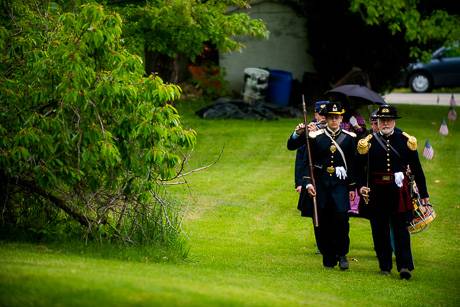
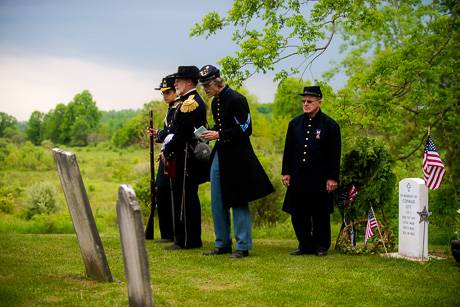
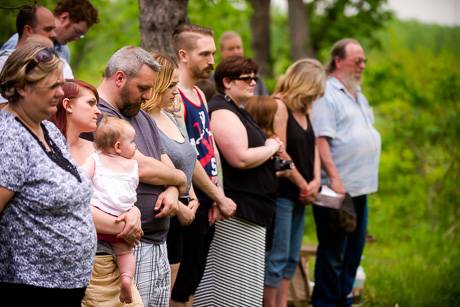
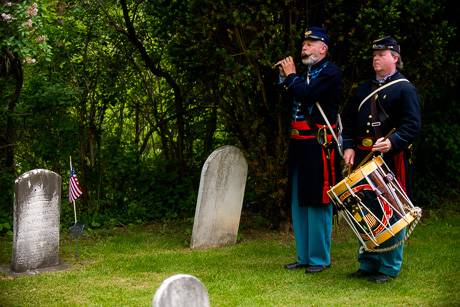
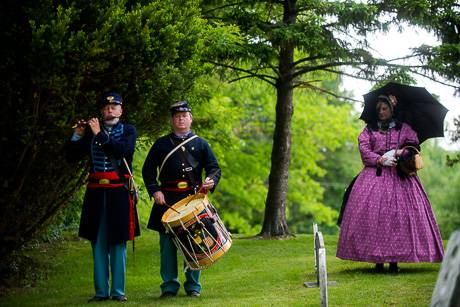
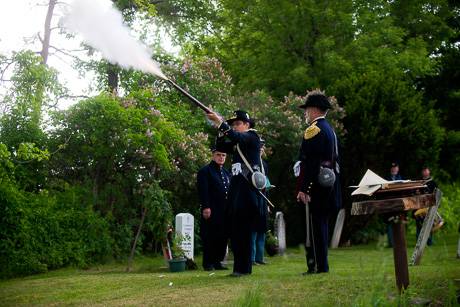
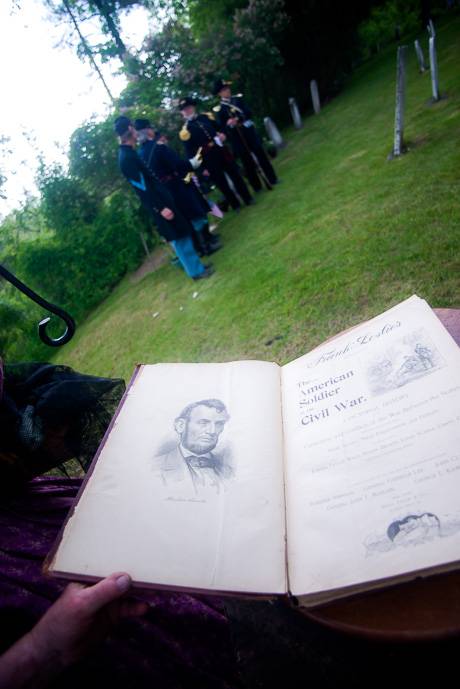
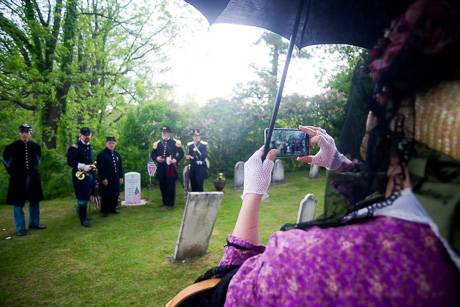

Very nice job by all.
Very nice job by all. Wonderful service.